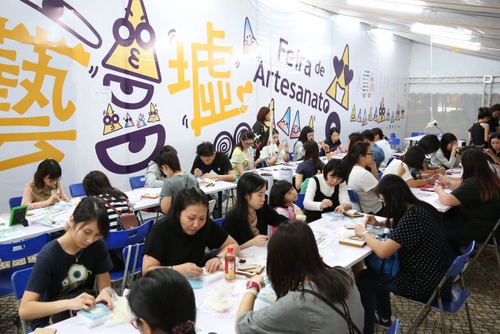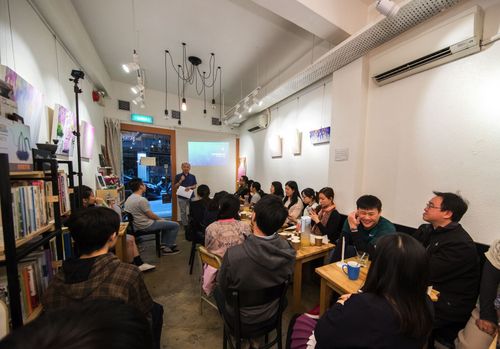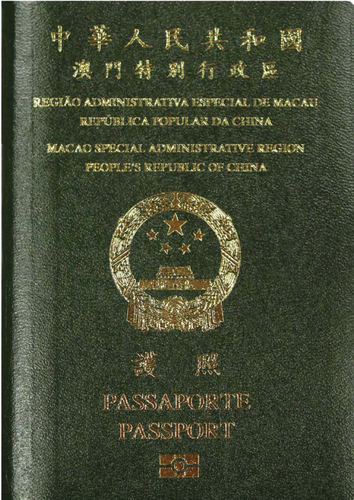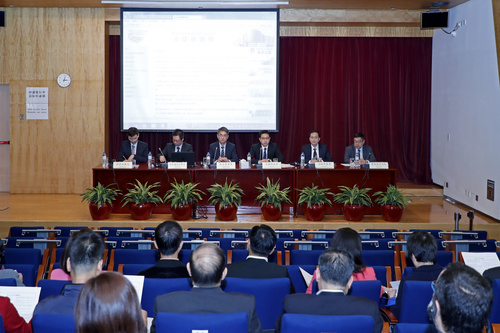Macao SAR Government Portal
News
International Conference with over a thousand participants in Macao where strong software and hardware facilities of the exhibition industry are experienced
The “5th GSMA Wholesale Agreement & Solutions Working Group” (hereinafter “WAS#5”) was hosted in the Sheraton Grand Macao Hotel, Cotai Central from 27 to 30 March. This event attracted more than 1000 attendees representing telecommunication operators from around 70 countries and regions. Terrence Leung, the organizer of WAS#5, stated that this is the second time WAS#5 was held in Asia, with Macao being this edition’s chosen city. He indicated that the strength of Macao’s exhibition industry had increased substantially, and the support from a number of policies and the “One-stop” conference package make Macao a more attractive destination than other Asian regions.
…
“Tap Siac Craft Market” opens on Friday 2nd Award Ceremony and Concert of the Subsidy Programme for the Production of Original Song Albums held concurrently
Organised by the Cultural Affairs Bureau (IC) and co-organised by the Civic and Municipal Affairs Bureau, the “Tap Siac Craft Market” will be held from 21 to 23 April and from 28 to 30 April for two consecutive weekends (Friday to Sunday), at Tap Siac Square, featuring a variety of cultural and creative products from the local community and seven neighbouring areas. In addition, nearly 40 workshops and several music performances and the 2ndAward Ceremony and Concert of the Subsidy Programme for the Production of Original Song Albums will be held. All are welcome to participate and enjoy the fun of creative works and the lively atmosphere of the event.
…
Consumer Council conducts price survey on selling prices of fresh pork and vegetables from Zhuhai and Macao
For the implementation of Section 2b), Article 10, Law 4/95/M of 12 June, Consumer Council on 18 April collects prices of fresh pork from wet markets and supermarkets for consumers’ reference. The mentioned data collected during 12 April to 18 April are used for comparing the average selling price of the same products from Zhuhai. The relevant data has been uploaded to the Council’s website for consumers’ reference.
…
Consumer Council surveyed prices and services of bottled water suppliers
Consumers usually purchase water vouchers in advance for ordering bottled water at different times. In a recent survey conducted by the Consumer Council, it is found that no expiry dates are printed on these vouchers by the water suppliers, the Council indicates that expiry dates are important information to consumers exercising their rights, water suppliers are reminded to state clearly the relevant information on their vouchers to safeguard consumer rights.
…
Several outreach activities of the 28th Macao Arts Festival held successfully
Organised by the Cultural Affairs Bureau, the 28thMacao Arts Festival (MAF) presents a number of extraordinary programmes as well as various outreach activities, allowing the residents to experience different forms of arts.
…
Holders of the Macao Special Administrative Region Passport are granted visa-free access to St. Kitts and Nevis
The Identification Services Bureau has been confirmed by the Ministry of Foreign Affairs and Aviation of St. Kitts and Nevis that holders of the Macao SAR Passport are granted visa-free access to St. Kitts and Nevis for tourism purpose with a maximum stay of one month.
…
Environmental statistics 2016
Information from the Statistics and Census Service (DSEC) indicated that the land area of Macao measured 30.5 km2 in 2016. The population density went up from 21,100 persons per km2in 2015 to 21,400 persons per km2.
…
Electoral Affairs Commission explains 2017 election guidelines to Legislative Assembly members
The Chairman of the Electoral Affairs Commission for the 2017 Legislative Assembly Election, Mr Tong Hio Fong, said he expected there would be a reduction in the number of guidelines issued by the Commission compared to previous polls.
…
Consumer Council released latest ‘Supermarket price survey’ Surveyed spots included supermarkets in N. Sra. de Fátima Parish
Consumer Council conducted its third ‘Supermarket price survey’ in April on 13 April for the implementation of Section 2b), Article 10, Law 4/95/M of 12 June. Surveyed locations included 14 supermarkets in Toi San, Ilha Verde and Fai Chi Kei areas in N. Sra. de Fátima Parish.
…
Residential price index 2016
The Statistics and Census Service (DSEC) released the residential price index for 2016, which is calculated with 2011 as the base year. Information indicated that the residential price index climbed to its highest level in the second and third quarters of 2014, followed by a downward trend before regaining momentum in the second quarter of 2016. Yet, the annual average index for 2016 was still lower than that for 2015, while the rate of decline slowed down.
…






